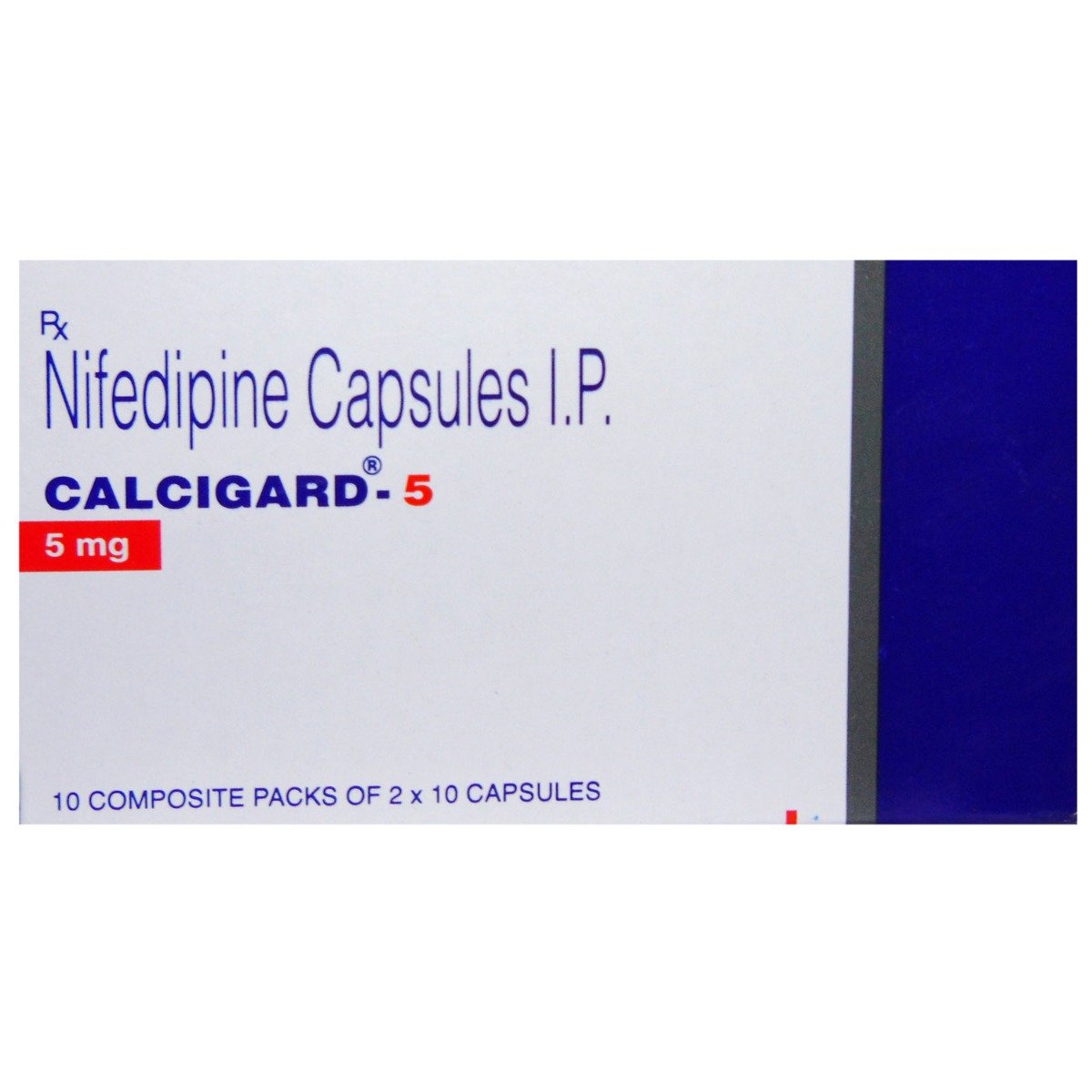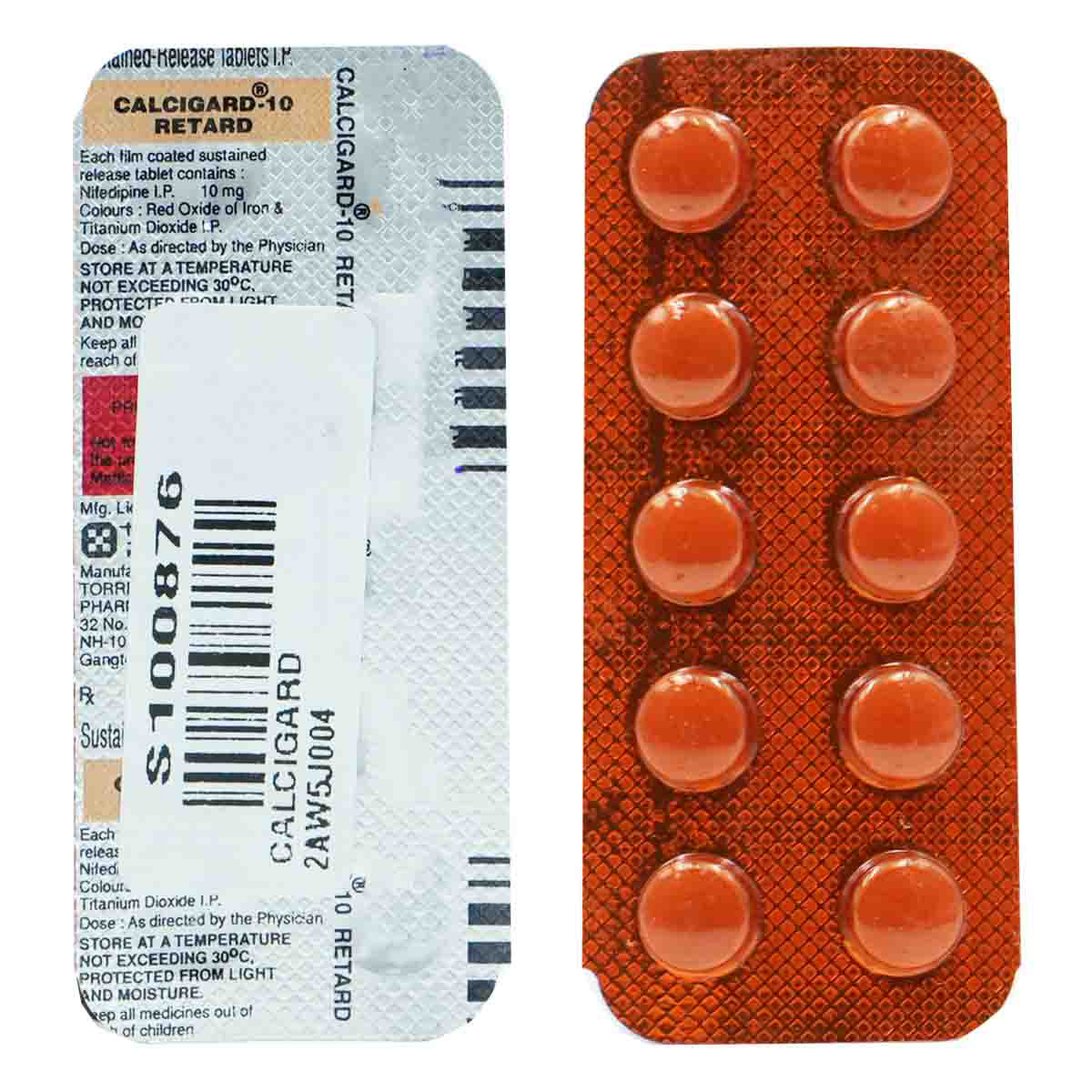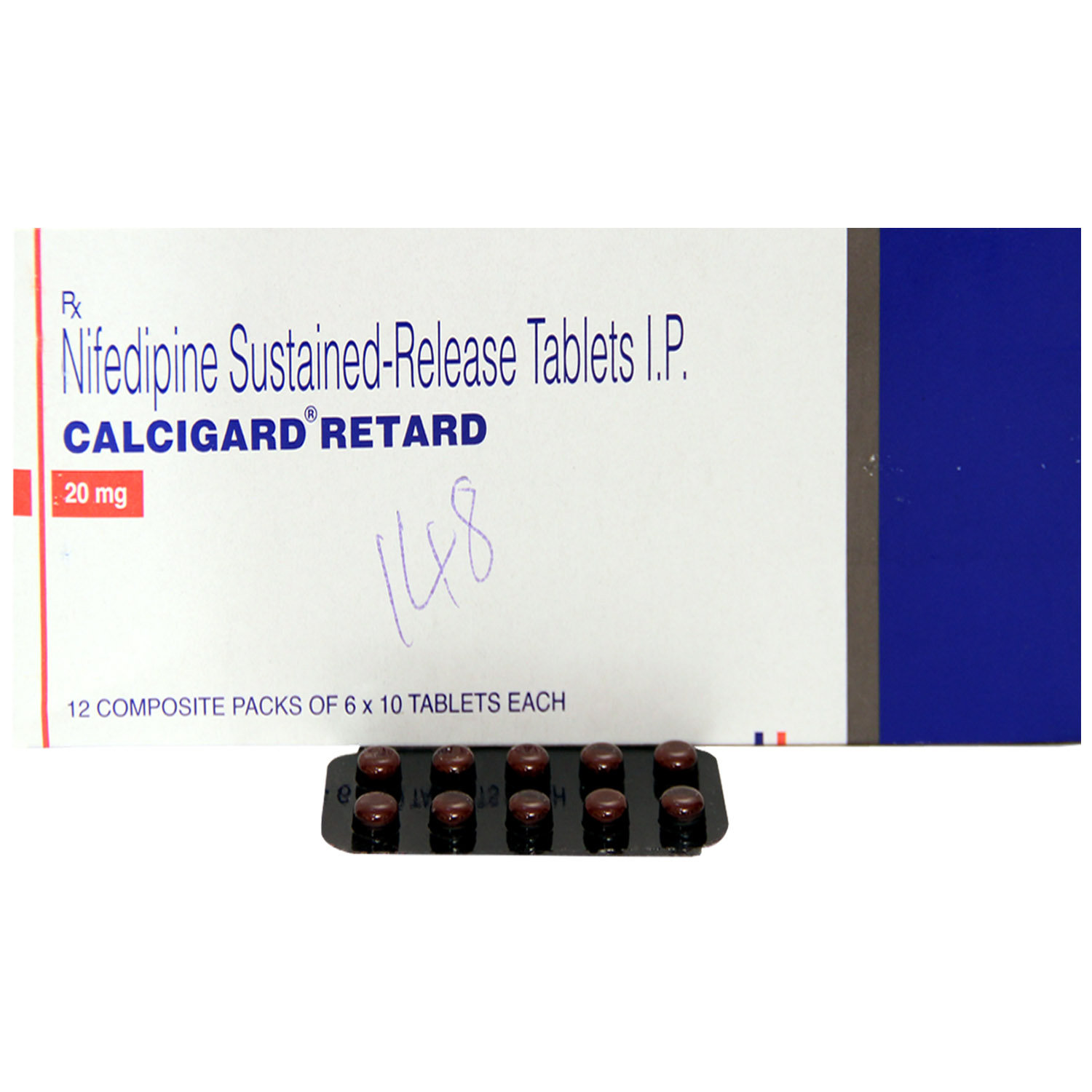Nifedipine
About Nifedipine
Nifedipine belongs to a group of medications called Calcium channel blockers primarily used to treat high blood pressure (hypertension). Hypertension (High blood pressure) is a condition in which the force exerted by the blood against the artery walls becomes so high that it causes health problems, such as heart disease. It is also used to reduce strokes and chest pain (angina) caused by the arteries' blockage. In addition to this, Nifedipine is also used to treat preterm labour.
Nifedipine works by relaxing the blood vessels; this lowers your blood pressure and reduces your risk of having a stroke, a heart attack, other heart problems, or kidney problems in the future. This medicine needs to be taken regularly to be effective and also for the best results.
Your doctor will advise you on how often you take Nifedipine based on your medical condition. You may experience common side effects like low blood pressure, headache, slow heartbeat, dizziness, and rash in some cases. Most of these side effects of Nifedipine do not require medical attention and gradually resolve over time. However, if the side effects are persistent, reach out to your doctor.
Try not to stop taking this medicine of your own. Let your doctor know if you have any liver or heart problems, are pregnant or breastfeeding. You should monitor your blood pressure regularly to be sure that the Nifedipine is working efficiently. And also, a healthy diet, and regular exercise is necessary to keep blood pressure under control. Do not eat grapefruit or drink grapefruit juice while you're taking nifedipine. It can make side effects worse. Even a small reduction in sodium in your diet helps improve your heart's health and reduce blood pressure.
Uses of Nifedipine
Medicinal Benefits
Nifedipine works by relaxing the blood vessels; this lowers your blood pressure and reduces your risk of having a stroke, a heart attack, heart-related chest pain (angina) other heart problems, or kidney problems in the future. This medicine needs to be taken regularly to be effective and also for the best results.
Directions for Use
Storage
Side Effects of Nifedipine
- Low blood pressure
- Headache
- Slow heartbeat
- Dizziness
- Rash
Drug Warnings
Nifedipine should be taken with caution in patients with chest pain (angina), congestive heart failure, liver/kidney disease, hypotension (low blood pressure), peripheral oedema (swelling of hands/legs), and diabetes. You should monitor your blood pressure regularly to make sure the Nifedipine is working efficiently. Besides, this prolonged intake of Nifedipine can lower blood pressure (hypotension). So, daily monitoring of blood pressure is advisable.
Drug Interactions
Drug-Drug Interaction: Nifedipine is known to interact when taken with an anticancer drug (quinidine), antiepileptic medicine (phenytoin), anti TB drug (rifampicin), antibiotics (erythromycin), other blood pressure-lowering pills and anti-psychotic drugs, anti-HIV drug (iamprendinavir, nelfinavir, ritonavir, saquinavir or amprenavir), drugs used to treat insomnia or anxiety (Phenobarbital).
Drug-Food Interaction: Please keep your doctor informed of what herbal products you are taking, especially St. John's wort (used in the treatment of depression).
Drug-Disease Interaction: Nifedipine is contraindicated in patients with severe aortic stenosis (narrowed heart valve), cardiogenic shock (when suddenly heart does not get enough blood supply), the recent history of unstable angina (chest pain), heart failure, and hypotension (low blood pressure).
Drug-Drug Interactions Checker List:
Safety Advice

Alcohol
cautionAlcohol consumption may increase the occurrence of unpleasant side effects.

Pregnancy
cautionIf you are pregnant, think you may be pregnant, or plan to have a baby, ask your doctor for advice before taking this medicine. You may be able to use Nifedipine but only after special consideration by your doctor.

Breast Feeding
cautionPlease do not take Nifedipine without a doctor's advice as it may pass through the breast milk.

Driving
cautionNifedipine may cause side effects like dizziness, which could affect your ability to drive. Hence, drive or operate machinery only when you are alert.

Liver
cautionThere is limited information available on the use of Nifedipine in patients with liver disease. Please consult your doctor.

Kidney
cautionNifedipine is probably safe to use in patients with kidney disease. Limited data available suggests that dose adjustment may not be needed in these patients. Please consult your doctor.

Children
cautionThe safety and effectiveness of Nifedipine have not been established in children due to limited testing of this drug on children by competent authorities worldwide.
Habit Forming
Diet & Lifestyle Advise
- Weight loss is an effective lifestyle change for controlling blood pressure. Losing even a small amount of weight can be very helpful in lowering blood pressure.
- Include a more healthy diet like whole grains, fruits, and low-fat dairy products in your food as it will effectively help lower blood pressure. Also, prefer eating home-cooked food and avoiding eating junk and outside food.
- Do not eat grapefruit or drink grapefruit juice while you're taking nifedipine. It can make side effects worse.
- Even a small reduction in sodium in your diet helps improve your heart's health and reduce blood pressure.
- Regularly monitor your blood pressure as it can fluctuate and can lead to serious life-threatening effects.
- Avoid the intake of alcoholic beverages with Nifedipine as it can make you dehydrated and affect your sleep. Drinking more amount of alcohol can actually raise blood pressure and affect the efficacy of Nifedipine.
Patients Concern
Disease/Condition Glossary
Blood pressure: It is the measurement of the force that our heart uses to pump blood to all parts of the body. Hypertension is a chronic condition when blood pressure is too high. This condition can lead to hardened arteries (blood vessels), decreasing the blood and oxygen flow to the heart. Raised blood pressure can cause chest pain (angina) and heart attack (when blood supply to the heart is blocked). Additionally, high blood pressure also causes brain damage (stroke) and kidney failure. High blood pressure can be diagnosed with the help of a blood pressure monitor or sphygmomanometer. Systolic pressure is the pressure when the heart pumps blood out. On the other hand, diastolic pressure is when your heart is at the resting stage between heartbeats. If your blood pressure is 140/90 mm of Hg, it means the systolic pressure is 140 mm of Hg, and diastolic pressure is 90 mm of Hg. Ideal blood pressure should be between 90/60 mm of Hg and 120/80 mm of Hg.
FAQs
Yes, Nifedipine can cause a sudden drop in blood pressure especially when you start taking Nifedipine, to avoid sudden drop please get up gently when sitting down so as to avoid dizziness.
It is advised to continue your medicine even after your blood pressure is under control or becomes normal as blood pressure can shot up at any time. If you have a persistent headache, please consult your doctor immediately.
If you miss a dose of Nifedipine, you are advised to take it as soon as you remember. However, if it's time for you to take your next dose, you should skip the missed one and continue your scheduled dose. Taking both the doses together can lead to very low blood pressure, hence avoid a double dose.
No, it is a prescribed drug given by a physician for preventing specific medical conditions. Taking it on your own can cause unwanted side-effects.
If you forget to take Nifedipine at any time, take it as soon as you remember, then continue to take it at the usual times. Do not take a double dose to make up for a forgotten dose.
It is a medical term for fluid retention. Due to oedema, the affected area starts swelling up. If it does not subside, please consult your doctor immediately.
Nifedipine, if stopped abruptly, may lead to withdrawal symptoms. Before stopping Nifedipine, consult your doctor; your dose will be lowered gradually to avoid any unpleasant side effects of Nifedipine.








